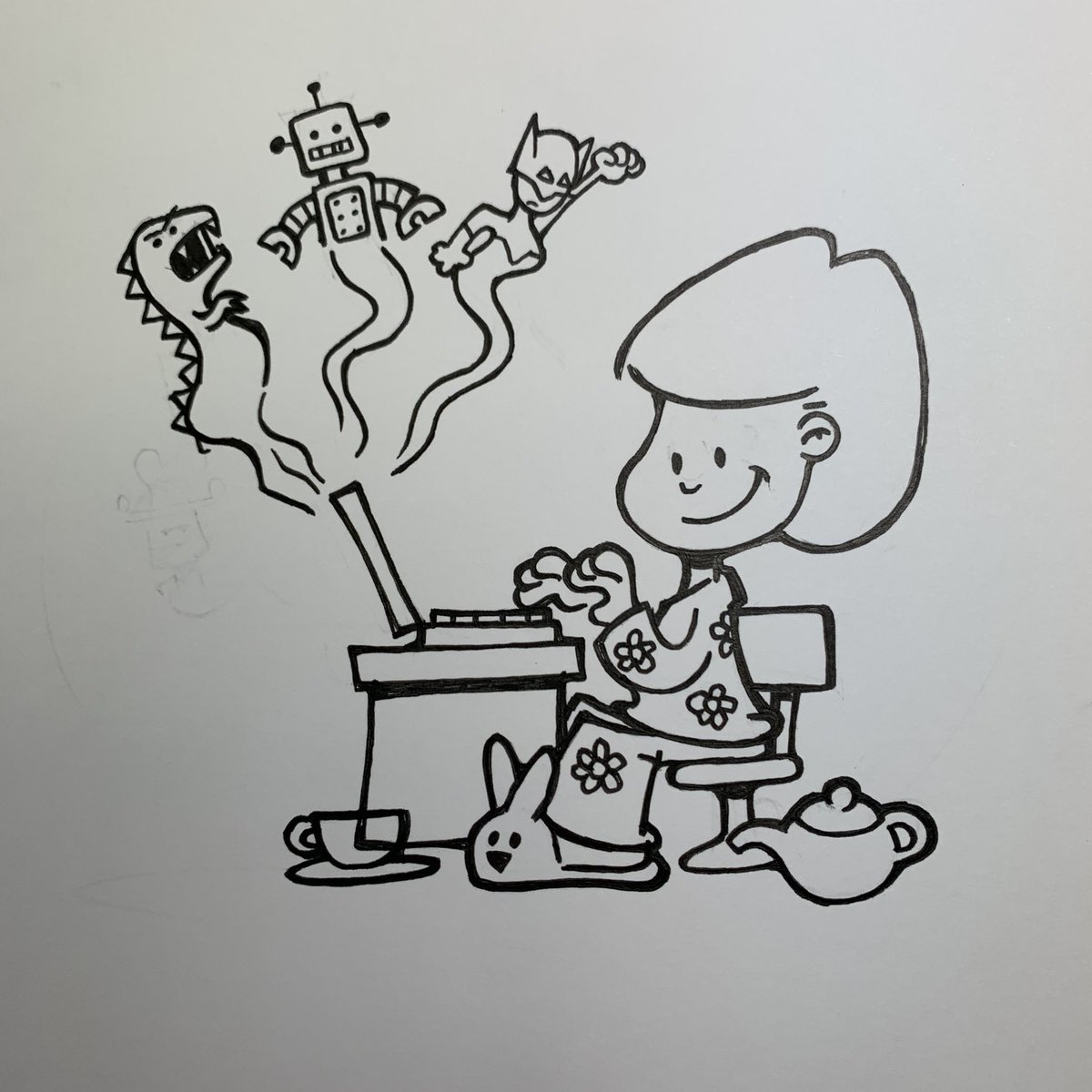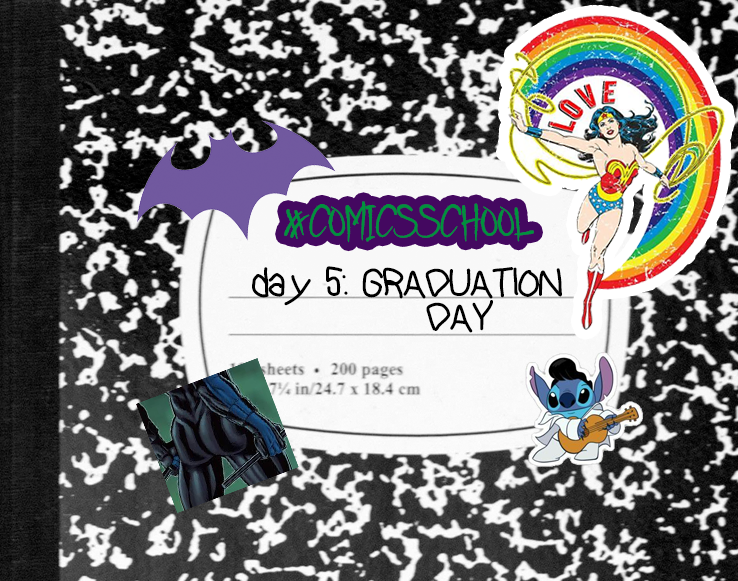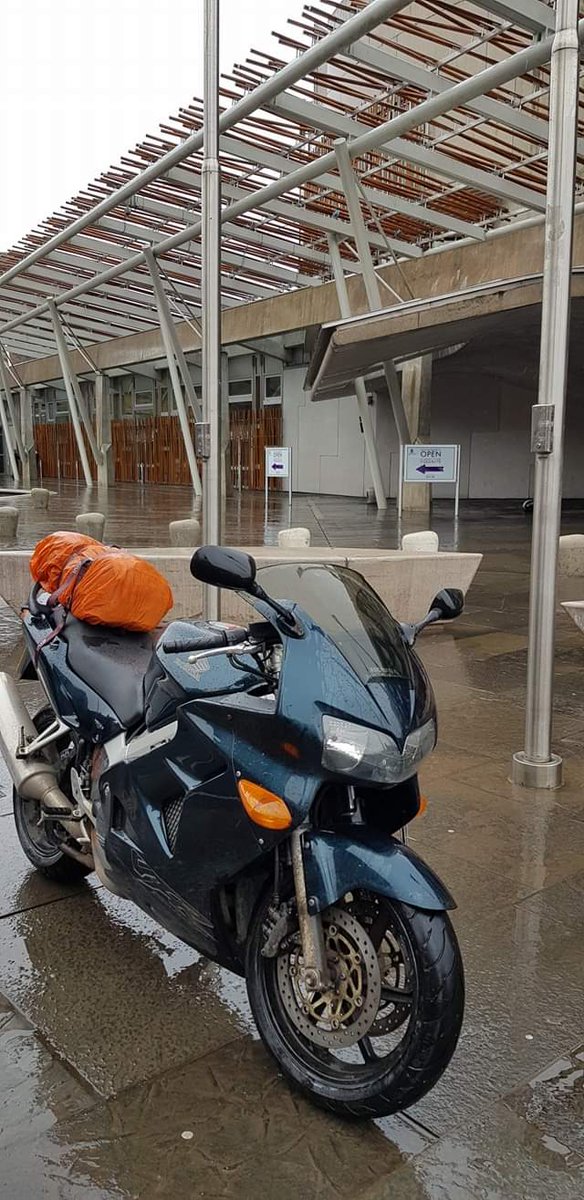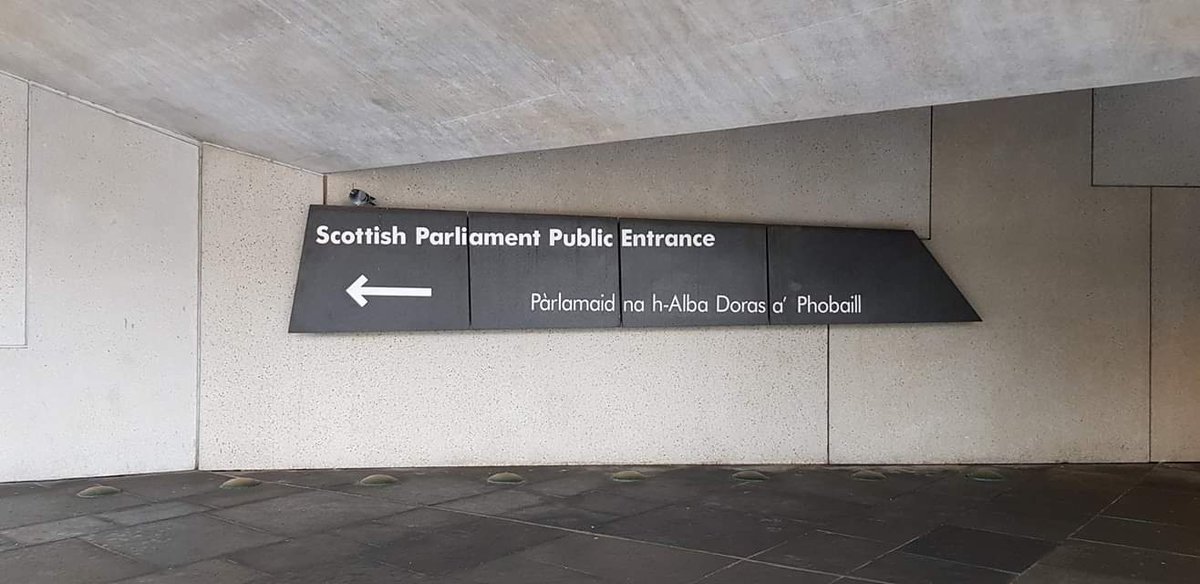discordapp.com/invite/dV295qb
BUT IT'S AS SINCERE AS LINUS' PUMPKIN PATCH ON HALLOWEEN!
Check it out and come back!

YOU.
DID.
IT.
A BUNCH of my busiest and most brilliant pro friends have offered to help.
Because of YOU.
Our DISCORD community has over a thousand members already and is growing every hour.
But best of all...
I have been making comics a while now, I never saw anything quite like it.
Note for the day: We all need a Fred sometime!
I want you to think about what you accomplished here for one last moment.
But I wanted to present something that was a little more like the EXPERIENCE we get as freelancers.
But you learned what a springboard is, how an outline can look, you wrote a first page, and half a story, revised and edited, and then FINISHED a story.
Along that trail, you learned industry vocabulary, the creator-to-reader chain, and more.
I deliberately had you do your homework twice...once BEFORE the lesson and once after. Because writing to a bunch of rules is not, I feel, as great a teacher as jumping in and TRYING. Then the rules MEAN more.
Honest truth, if I were putting together an anthology right now, there are a BUNCH of assignments that were turned in that I would be PROUD to publish.
The first INDISPUTABLE TRUTH and the last UNIVERSAL TOOL.
First, the truth. Make this your motto.
Many classes and papers on writing tell you how the AUTHOR does things. That's fine.
But one look at the layouts and scripts show that you all found your OWN way.
NOTHING IS WRONG IF IT WORKS.
When I was offered a gig writing Simpsons comics, because they liked a column I did online, I thought -I- was the wrong thing. Wrong gender, wrong location, wrong experience, everything.
But I wrote stories they liked. Nothing else mattered.
Make me that promise, okay?
And when you are making your next stories, and you have an idea, PROMISE ME YOU WILL TRY IT.
Because nothing is wrong if it WORKS.
A story kept locked unfinished in your desk drawer is not helping your confidence, it's picking at it.
Finish. Make small goals. Finish those.
Remember the five UNIVERSAL TOOLS we have covered so far?
FOCUS
TALENT
PASSION
CRAFT
and STYLE.
With one more.
PROFESSIONALISM.
Just like strength, dexterity, and constitution.
Your experience becomes your experience points. And you CAN level up, with enough experience.
Everyone's character sheet is different.
AND THAT IS OKAY.
But perhaps your style score is low.
NO ONE ROLLED 18 ON ALL OF THESE SCORES, you guys.
That is 100% VALID.
If you are a hyper-focused writer, you may be great at epic sagas that would crush a daydreaming genius talent.
A writer might write a hundred balloons before it sounds like a person speaking.
Make sense?
Talk to Freds, ask pros about it, read interviews.
You CAN raise up your lowest stats.
You may always struggle with one of your tools. But that's why there are SIX categories. You can dazzle with the rest!
YOU DON'T KNOW WHAT YOU CAN DO UNTIL YOU DO IT.
All these people, most of whom had never done this before, now have a complete script in hand.
You don't know what you can do until you do it.
That's your real life Fred, your editor.
So I asked some of my favorite editors what THEIR best advice would be to you students. This is a big thrill for me.
(She means in the script here, not always in dialog).
Know what I mean, Gail?
Yes, Shelly?
By this, Gail, I mean that in conversation, we don’t actually keep referring to ourselves by name, Gail.
She has some practical advice here.
Here’s a decent website that breaks some comic stuff down: makingcomics.com/2014/03/08/wri…
Don’t approach editors with the sole purpose of pitching, try to create organic relationships by networking at cons and being able to take criticism.
We are discussing the tips some of the best editors in the business have for you students in particular, they wrote these for this lesson for you!
DEFINITELY follow this.
Pick your formatting conventions and stick with them for the duration of your script. Those are your rules now. Change it up on the next one if you like, don’t change midstream. "
Start a new comic page on new pages of your script document. "
Comics scripts are a dialogue with your editor/artist. Use hyperlinks/pictures/etc to get your point across if you need to. "
The editor becomes your best friend, the person carrying the vaccine through the lines!
Thanks Chris, Desiree, Kevin and Shelly!
He has a little cliffhanger at the end of every page. Not necessarily DANGER to the protagonist, just a little, "What happens next?" moment that makes you turn the page.
I use this tip a LOT, but Chuck is the master.
I have a bit of a process for this. It's three steps.
It doesn't matter much on bit players passing through. But if my hero says a phrase or sentence that I saw in three movies already, I strike it down like Odin strikes down pie. Take it out. It's useless.
It is OKAY for you to say the dialog out loud. I highly recommend it. If you can't say it, the reader can't HEAR it.
Make sense?
Sorry, Kev! :)
You did it once. You crushed it.
Now you know you CAN.
Remember your Roadblock Box? Open it up if you have it nearby.
Take out the paper inside, the reasons why we thought we couldn't DO this.
You wanted to do this and you did it.
Throw the paper away. Don't be your own roadblock ever again.
But you DID.
That is the best part of this job.
And it gets better the more you do it, the more you try, the better you get, the more you accomplish.
There is NO REASON that you shouldn't keep going.
There's a LOT these lessons didn't cover. We didn't talk about finding artists or editors or any of those things.
Because the focus was on ONE story.
But we're not completely done.
You built a community, let's use it!
:)
Save the notebook you have been using. Let it be your armory. You have a lot of information in it, but let's go further.
Let's put ideas in it.
Keep it where you know where it is.
I promise, nothing is as precious as a notebook full of ideas. It's like the future is knocking. :)
I know I'm going to be hearing from a BUNCH of you.
CLASS DISMISSED!














